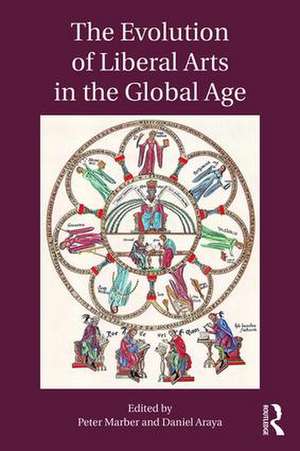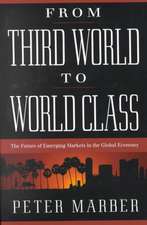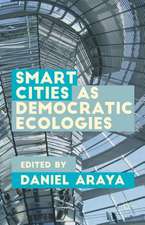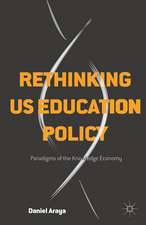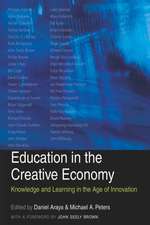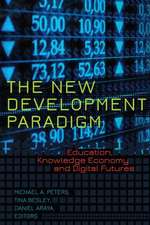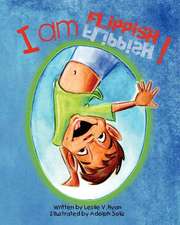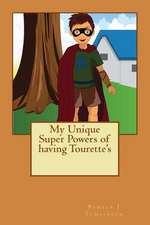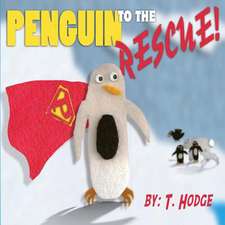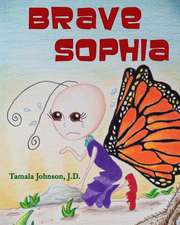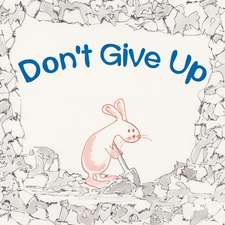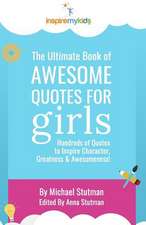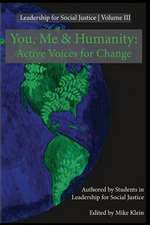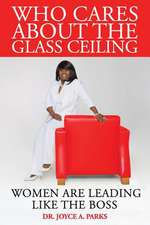The Evolution of Liberal Arts in the Global Age
Editat de Peter Marber, Daniel Arayaen Limba Engleză Paperback – 22 mar 2017
| Toate formatele și edițiile | Preț | Express |
|---|---|---|
| Paperback (1) | 438.48 lei 6-8 săpt. | |
| Taylor & Francis – 22 mar 2017 | 438.48 lei 6-8 săpt. | |
| Hardback (1) | 709.36 lei 6-8 săpt. | |
| Taylor & Francis – 24 mar 2017 | 709.36 lei 6-8 săpt. |
Preț: 438.48 lei
Nou
Puncte Express: 658
Preț estimativ în valută:
83.90€ • 87.84$ • 69.42£
83.90€ • 87.84$ • 69.42£
Carte tipărită la comandă
Livrare economică 05-19 aprilie
Preluare comenzi: 021 569.72.76
Specificații
ISBN-13: 9781138184435
ISBN-10: 1138184438
Pagini: 264
Ilustrații: 12
Dimensiuni: 152 x 229 x 19 mm
Greutate: 0.36 kg
Ediția:1
Editura: Taylor & Francis
Colecția Routledge
Locul publicării:Oxford, United Kingdom
ISBN-10: 1138184438
Pagini: 264
Ilustrații: 12
Dimensiuni: 152 x 229 x 19 mm
Greutate: 0.36 kg
Ediția:1
Editura: Taylor & Francis
Colecția Routledge
Locul publicării:Oxford, United Kingdom
Public țintă
PostgraduateCuprins
Contents
Foreword - Cathy N. Davidson
Preface
Part I: The American Tradition
Index
Foreword - Cathy N. Davidson
Preface
Part I: The American Tradition
- The Yale Report of 1828A Committee of the Corporation and the Academic Faculty
- The Declension Narrative, the Liberal Arts College, and the UniversityBruce A. Kimball
- Amending the Liberal Arts: An Analysis of Learning Outcomes for Professional MajorsGraham N. S. Miller, Cindy A. Kilgo, Mark Archibald, and Ernest T. Pascarella
- The Lure of Liberal Arts: Emerging Market Undergraduates in the United StatesPeter Marber
- Next-Generation Challenges for Liberal EducationJesse H. Lytle and Daniel H. Weiss
Part II: Liberal Arts Around the World - Précis of a Global Liberal Education Phenomenon: The Empirical StoryKara A. Godwin
- The Emergence of Liberal Arts and Sciences Education in Europe: A Comparative PerspectiveMarijk van der Wende
- Thinking Critically about Liberal Arts Education: Yale-NUS College in SingaporeCharlene Tan
- Academic Freedom and the Liberal Arts in the Middle East: Can the US Model be Replicated?Neema Noori
- The African Liberal Arts: Heritage, Challenges and ProspectsGrant Lilford
Part III: Evolutions and Revolutions in the Global Age - Is "Design Thinking" the New Liberal Arts?Peter N. Miller
- Hong Kong’s Liberal Arts Laboratory: Design-Thinking, Practical Wisdom, and the Common Core@HKUGray Kochhar-Lindgren
- Liberal Arts Education in the Age of Machine Intelligence
Daniel Araya - Work, Service, and the Liberal Arts: Campus and Community as Pedagogical Resources
Steven L. Solnick - The Promise of Liberal Education in the Global Age
Christopher B. Nelson - Education for Citizenship in an Era of Global Connection
Martha Nussbaum
Index
Notă biografică
Peter Marber lectures on emerging markets and socioeconomic development in the Faculty of Arts and Sciences at Harvard University, USA.
Daniel Araya is a Hult-Ashridge Research Fellow at the Hult Center for Disruptive Innovation in San Francisco, USA.
Daniel Araya is a Hult-Ashridge Research Fellow at the Hult Center for Disruptive Innovation in San Francisco, USA.
Recenzii
"These essays provide food for the soul, the mind, and the spirit in these disruptive, chaotic, often brutal and exponentially changing times. We desperately need such reaffirmation of the importance of informed citizenship in despotic times. We also need a next generation to be better educated to understand the moral, social, intellectual, and ethical dimensions of a digital age run amok….It is to the liberal arts that we turn for those consolations, insights, and abiding human powers. It is to these essays that I invite you, now, to turn and be inspired."
-From the Foreword by Cathy N. Davidson, Distinguished Professor at Director of the Futures Initiative, Graduate Center, the City University of New York
"In an uneasy time, when nuanced habits of mind and deeply engaged citizenship are as needed as at any point in history, The Evolution of Liberal Arts in the Global Age makes a compelling case for the irreplaceable strengths of American liberal arts education. Policy-makers and educators in the United States and around the world should add this volume to their ‘must-read’ lists: it is a clarion call for the advancement of education that can literally help save our world."
-Mark Roosevelt, President, St. Johns College
"Marber and Araya have gathered a brilliant array of essays that together stage a vital conversation about the intersection of that distinctive American cultural idea, the liberal arts curriculum, and global society’s eagerness to harness today’s new forms of thought, creativity, communication, and commerce for universal betterment. The book’s commentators, consistently informed and astute as they traverse the educational landscape stretching from Asia to Latin America, offer a compelling case for liberal learning’s continued vibrancy and relevance in a fast-changing, challenging, but also potentially thrilling world."
-Kimberly W. Benston, President and Gummere Professor of English, Haverford College
-From the Foreword by Cathy N. Davidson, Distinguished Professor at Director of the Futures Initiative, Graduate Center, the City University of New York
"In an uneasy time, when nuanced habits of mind and deeply engaged citizenship are as needed as at any point in history, The Evolution of Liberal Arts in the Global Age makes a compelling case for the irreplaceable strengths of American liberal arts education. Policy-makers and educators in the United States and around the world should add this volume to their ‘must-read’ lists: it is a clarion call for the advancement of education that can literally help save our world."
-Mark Roosevelt, President, St. Johns College
"Marber and Araya have gathered a brilliant array of essays that together stage a vital conversation about the intersection of that distinctive American cultural idea, the liberal arts curriculum, and global society’s eagerness to harness today’s new forms of thought, creativity, communication, and commerce for universal betterment. The book’s commentators, consistently informed and astute as they traverse the educational landscape stretching from Asia to Latin America, offer a compelling case for liberal learning’s continued vibrancy and relevance in a fast-changing, challenging, but also potentially thrilling world."
-Kimberly W. Benston, President and Gummere Professor of English, Haverford College
Descriere
Beginning with historical context, international contributors explore the contours of liberal arts education amid public calls for change in the United States, the growing global interest in the approach outside the United States, as well as the potential of liberal arts philosophy in a global knowledge economy.
